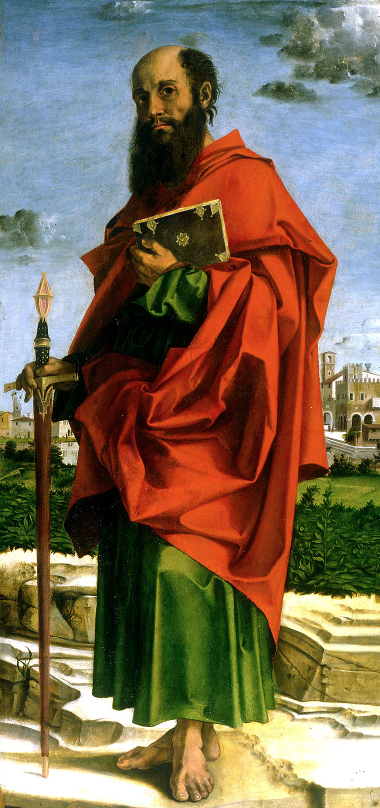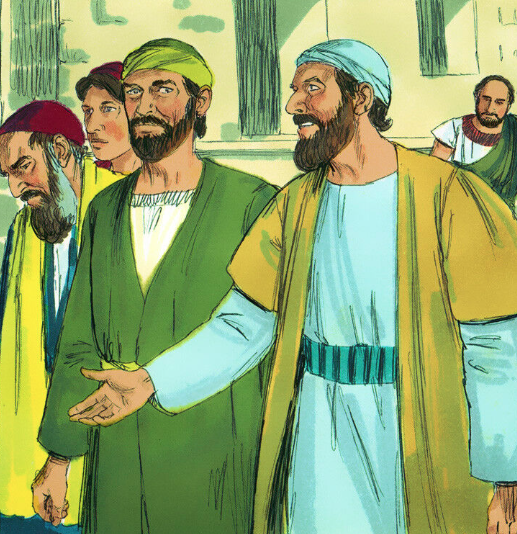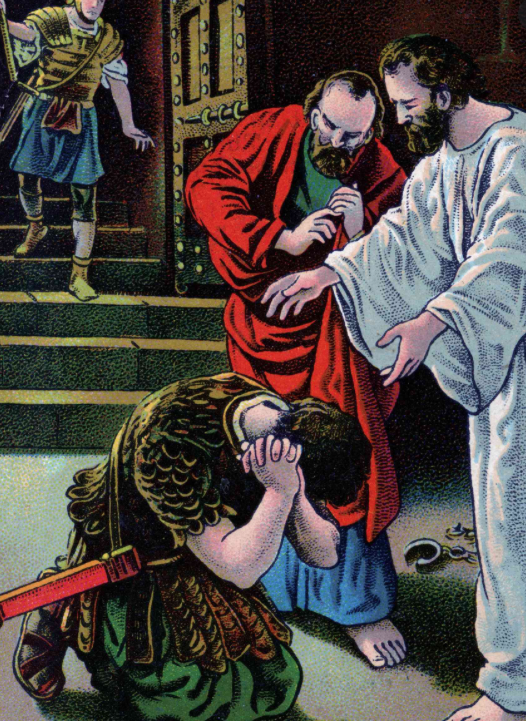According to the scriptures, Saint Silas was a bona fide companion of Apostle Paul. It’s also believed that the Silas mentioned in the holy books of acts is the same as Silvanus who is mentioned in 1stPeter, 1stand 2ndThessalonians, and 2ndCorinthians. So, why is Silas significant in the bible?

Keep reading to find out why:
Contents
Contents
What notable missions did Saint Silas undertake?
Saint Silas, or Apostle Silas if you may, did a handful of missions. For instance, he was put in charge of the Christian community-based in Jerusalem. (https://www.redmanpowerchair.com) He was later sent out to Antioch (present-day Antakya in turkey) to continue doing the great work of preaching the gospel. It was then that Silas was identified as a prophet. That’s according to Acts 15:32 while preaching to Antiochene Christians.

After staying in Antioch for a considerable amount of time, Apostle Paul felt he needed Silas by his side after St. Barnabas split from Apostle Paul to start his faction of Christianity. Being the faithful friend that he was, Silas didn’t have any issues accompanying his friend and mentor on his next journey. Their journey took them throughout Turkey as well as Syria and Cilicia.
Everywhere they went, Silas and Paul ensured that they left the churches strengthened. Their rather long journey got them to Derbe and then Lystra where they were joined by St. Timothy. The trio journeyed to Galatia, then Troas, and finally got to Macedonia.
Silas and his companions faced a lot of resistance and criticism during their missionary journey. But, they never doubted themselves or the work they did. Their bravery was exhibited in Philippi (Kavala, Greece) when they got beaten up by an angry mob and got imprisoned for performing a miracle that left the inhabitants more terrified than impressed.
The miracle in question was the healing of an enslaved girl who was also possessed by a ‘demon’. In the scriptures, they refer to the ‘demon’ as the “spirit of divination. The trio journeyed to Thessalonica after their release and it didn’t take long before they were expelled there as well. It appeared as though their reputation for causing miracles had preceded them.
But, the trio didn’t falter at all. They marched forward to Beroea. Silas was left in Beroea as timothy and Paul moved forward to Athens. After taking some time to establish a church in Beroea, Silas joined Apostle Paul in Corinth. Besides preaching, Silas was also mentioned in the bible as Timothy’s coworker and coauthor.
What can Christians learn from the life of Silas?
There’s a plethora of lessons Christians can learn from Saint Silas. For instance, Christians can learn the importance of being courageous. It was a dangerous time to be preaching the gospel but Silas and his brothers kept pushing. They got beaten up and imprisoned, but not once did they renounce their faith in Jesus Christ. Where are they scared? Of course, they were. But that wasn’t enough to keep them down when most people could’ve given up.

Another lesson that Christians can learn from Silas is obedience. Many disciples of Christ jumped ship for fear of persecution, but not Silas. Instead, he rejoiced in the Lord and soldiered on to the very end. He always obeyed Apostle Paul who was his senior; stayed when he was told to stay and went when he was told to do so.
Silas had a strong faith in Jesus Christ. Despite not being among the twelve disciples, he always followed in Jesus’ footsteps and believed in the eternal life that comes after death. The latter is why he wasn’t fazed by all the threats and danger they faced as they preached the gospel.
Being prayerful is yet another incredible characteristic that Christians can learn from Apostle Silas. He and Apostle Paul prayed for as many times as they could. For instance, he and Paul made a point of praying at the trike of midnight while in prison in Philippi (Act 16:25).
What happened to Silas?
Whatever happened to Silas afterward isn’t quite clear, but it’s believed that he faced the same fate as Apostle Timothy who was dragged outside of his church by an angry mob of pagans and stoned to death. The Jews were hostile because they never liked Jesus Christ in the first place. The latter may have been the reason why Silas wasn’t mentioned. But, some experts claimed that Silas passed away in Rome between the ages of 50 and 70 AD, or somewhere in between.
Was Silas a demon?
No, just as his name suggests, Saint Silas was anything but a demon. The reason why many casual Christians find themselves in confusion is that he was with apostle Paul and apostle timothy when they healed a girl who was possessed by the ‘spirit of divination. So, the inhabitants of Philippi were scared and referred to Silas and his companions as demons. But in the real case, they weren’t.
